Braces Care Tips: What You Must AvoidSep 10
Sep 10
Brace care tips are essential for anyone wearing orthodontics. While braces straighten your smile, they also make daily oral hygiene more challenging. Small mistakes—like eating sticky foods or brushing too aggressively—can slow treatment, damage braces, and even harm your teeth. In this article, we’ll cover the key things you must avoid with braces, practical tips to stay on track, and how smart tools like BrushO make caring for braces easier than ever.
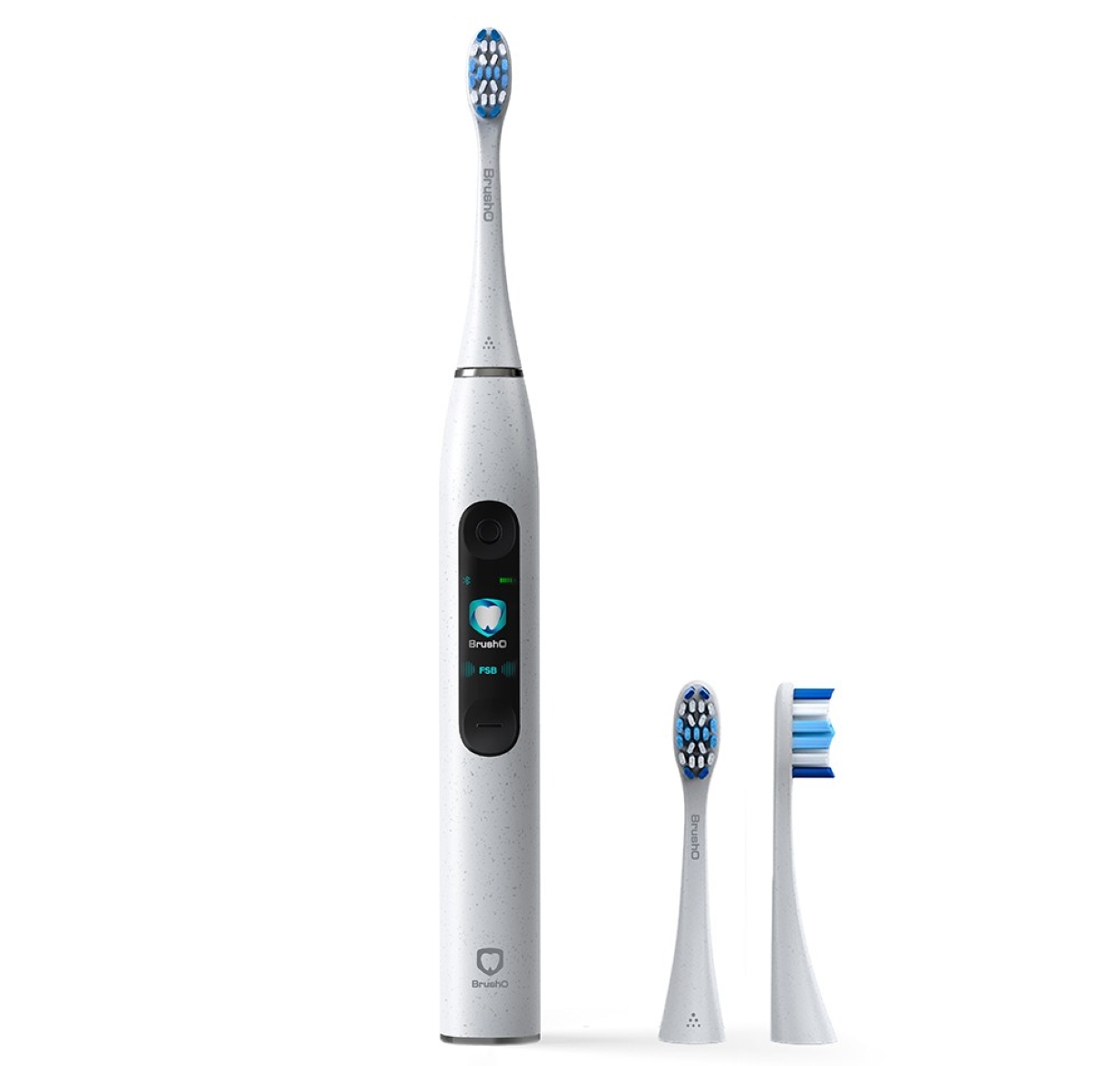
Why Oral Care Is Different with Braces 🦷
Braces create new surfaces where food and bacteria can hide. Plaque buildup around brackets and wires increases the risk of:
-
Cavities
-
Gum inflammation
-
Stains and white spots
-
Longer treatment times
👉 Good oral care is critical to protect both your braces and your teeth.
Mistake 1: Brushing Too Hard 🚫
Many people think aggressive brushing cleans better. But with braces:
-
Hard brushing can damage wires and scratch brackets.
-
It can also wear down enamel and irritate gums.
Tip: Use a gentle or sensitive mode on your BrushO toothbrush to protect both braces and enamel.
Mistake 2: Skipping Flossing or Interdental Cleaning 🧵
Braces make flossing harder, but skipping it leads to plaque around wires and brackets.
-
Use floss threaders or interdental brushes to clean between teeth.
-
Consider a water flosser for easier daily care.
Mistake 3: Eating Sticky or Hard Foods 🍬🥜
Certain foods can cause braces trouble:
-
Sticky foods (caramel, gum) → pull on brackets.
-
Hard foods (nuts, popcorn, ice) → can break wires.
-
Sugary snacks → increase cavity risk around braces.
Tip: Cut harder foods into smaller bites, and rinse after eating.
Mistake 4: Ignoring Regular Dental Checkups 🩺
Some think brushing at home is enough, but braces require regular professional monitoring. Dentists and orthodontists check for:
-
Bracket stability
-
Wire tension
-
Plaque or tartar buildup
Skipping visits can delay your progress.
Mistake 5: Not Cleaning Around Brackets Properly 🔍
Plaque around brackets leads to white spot lesions—permanent marks on enamel after braces are removed.
-
Angle your toothbrush at 45 degrees to reach under brackets.
-
Brush for at least 2 minutes twice a day.
How Smart Toothbrushes Help Braces Users 🤖
A smart electric toothbrush like BrushO solves many of these challenges:
-
AI-powered feedback ensures all tooth surfaces are cleaned.
-
Sensitive & gum-care modes protect enamel and gums.
-
Replaceable brush heads are designed for precision cleaning.
-
App tracking motivates consistency with scores and reminders.
👉 With BrushO, braces care becomes simpler, safer, and more effective.
FAQ: Braces Care Mistakes
Q1: Can I eat popcorn with braces?
No. Kernels can break wires or get stuck between brackets.
Q2: What toothbrush is best for braces?
A smart electric toothbrush with gentle modes and smaller heads, like BrushO, is ideal.
Q3: How often should I brush with braces?
At least twice daily, ideally after each meal.
Q4: Is flossing necessary with braces?
Yes. Flossing removes plaque where brushes can’t reach.
Caring for braces requires extra attention and discipline. Avoiding common mistakes—like brushing too hard, eating sticky foods, or skipping flossing—makes a huge difference in treatment success. With BrushO’s smart technology, braces users get guided brushing, safer modes, and consistent care that keeps teeth and gums healthy during orthodontic treatment.
Recent Posts
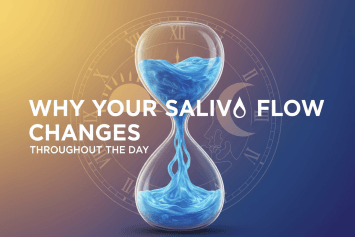
Why Your Saliva Flow Changes Throughout the Day
Saliva flow fluctuates throughout the day due to circadian rhythm, hydration, diet, and stress. Learn why it matters for oral health and how smart brushing protects teeth during low-saliva periods.
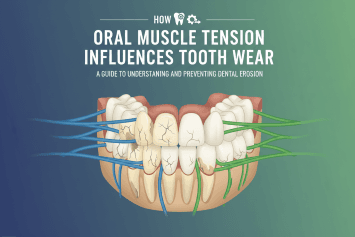
How Oral Muscle Tension Influences Tooth Wear
Oral muscle tension and jaw strain can accelerate tooth wear, enamel erosion, and gum stress. Learn how muscle habits influence dental health and how smart brushing supports long-term protection.
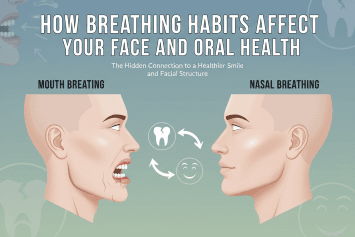
How Breathing Habits Affect Your Face And Oral Health
Discover how mouth vs nose breathing affects oral health, facial development, jaw alignment, and sleep quality — and how to protect your teeth and gums with proper habits.
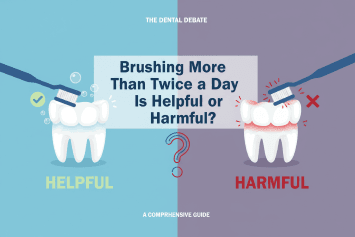
Brushing More Than Twice a Day Is Helpful or Harmful?
Is brushing more than twice daily good for your teeth? Learn how brushing frequency affects enamel, gums, and sensitivity, and discover dentist-backed guidance for safe oral care habits.
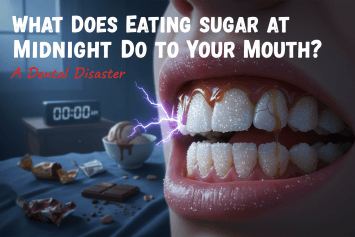
What Does Eating Sugar at Midnight Do to Your Mouth?
Discover how eating sugar at midnight affects oral bacteria, enamel health, and overall wellness. Learn why late-night snacking raises cavity risk and how proper brushing protects your teeth.

Does Early Morning Coffee Only Harm Your Teeth?
Morning coffee can stain teeth and affect enamel, saliva, and digestion. Learn how coffee impacts oral health and how to protect your smile with smart brushing habits.

How to Know Which Toothpaste Actually Suits You
Choosing the right toothpaste affects enamel strength, gum health, and sensitivity relief. Learn how to select the best toothpaste based on ingredients, needs, and brushing habits.

What Are the Bumps on the Back of Your Tongue?
Noticed bumps on the back of your tongue? Learn what they are, when they’re normal, warning signs to watch for, and how proper oral hygiene supports tongue health.

Why Most People Think They Brush Well, But They Don’t
Think you brush your teeth well? Discover why most people overestimate their brushing technique, the science behind plaque removal, and how smart tools improve oral hygiene effectiveness.

Top 5 Drinks That Quietly Damage Your Oral Health
Discover the top drinks that quietly damage oral health. Learn how sodas, juices, energy drinks, coffee, and alcohol erode enamel and increase cavity risk — plus science-backed tips to protect your smile.
